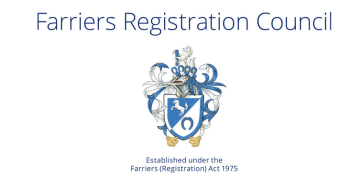In a sector facing its fair share of challenges, opinion may be split on whether the introduction of AI will help solve these or create more issues for teachers and leaders.
Browne Jacobson’s latest School Leaders Survey paints a picture of cautious embrace, with respondents identifying many existing and future AI use cases, while grappling with significant implementation hurdles.
The survey captured the views of more than 200 leaders – including CEOs, executive headteachers, trustees and governors – representing about 1,650 schools that are collectively responsible for nearly one million pupils across England.
How schools are using AI
The headline figure that jumps out is that half of school leaders surveyed are now using dedicated AI tools, with 20 per cent doing so regularly.
Considering how new many of these tools are – those cited include ChatGPT, Gemini, Microsoft Copilot, Claude and TeachMateAI – this suggests willingness to get to grips with new technology.
Two in five (41 per cent) report positive experiences, with only 5 per cent provide negative feedback.
What I find particularly interesting is how schools are actually using AI. The focus appears to be primarily practical: creating and enhancing resources, managing workload and summarising content were the most popular capabilities, each used by at least one-third of respondents.
This suggests AI is being embraced first as an administrative aid, rather than a direct teaching tool. However, there’s also evidence of more innovative applications, with 19 per cent using AI for personalised learning and 34 per cent of leaders seeing potential in using AI to support students with special educational needs and disabilities (SEND).
Challenges with AI adoption
But beneath this surface-level adoption, there are deeper challenges. The most striking is the expertise gap; 75 per cent of leaders feel their organisations lack sufficient AI knowledge.
This creates a potentially risky situation where schools are adopting powerful tools without fully understanding their implications.
The concerns raised by school leaders are particularly telling. Malpractice and plagiarism tops the list (cited by 65 per cent of respondents), followed by training needs (62 per cent) and quality control (58 per cent).
These worries reflect the unique challenges of implementing AI in educational settings, where maintaining academic integrity and ensuring fair assessment are paramount.
Developing an AI strategy is integral
What I find most concerning is the AI governance gap. Only 9 per cent of schools have an agreed AI strategy (though 31 per cent are developing one). This suggests many schools are adopting AI tools in an ad hoc manner rather than as part of a considered, strategic approach.
Given the Department for Education’s (DfE) strengthened requirements for safe AI usage, this governance gap needs urgent attention.
However, I’m encouraged by the fact that almost half (47 per cent) of leaders are confident these challenges can be managed with appropriate mitigation.
This suggests a pragmatic rather than a fearful approach to AI adoption. The focus on specific use cases – from resource creation to SEND support – indicates that schools are thinking carefully about where AI can add the most value.
Next steps for schools
Looking ahead, it’s clear that AI in education isn’t just about keeping up with technology; it’s about understanding and navigating the unique complexities of implementing new tools in school environments.
The challenge now is to bridge the expertise gap while developing robust governance frameworks that allow schools to harness AI’s benefits while managing its risks.
Schools must also be aware that government bodies such as the DfE, Ofsted, the Information Commissioner’s Office and Joint Council for Qualifications increasingly expect them to be engaging with these risks and properly considering compliance in order to use AI safely and effectively.
Without effective governance, schools are likely to lack the evidence of that risk and compliance work.
It’s also important when signing up for AI tools such as ChatGPT to consider procuring commercial licences rather than merely signing up with work or personal email addresses, which offer inappropriate terms and conditions.
The education sector stands at a crucial juncture. With proper support, training and governance, AI could help reduce teacher workload, personalise learning and improve educational outcomes.
But getting there requires careful navigation of the challenges identified in this survey.













Your thoughts